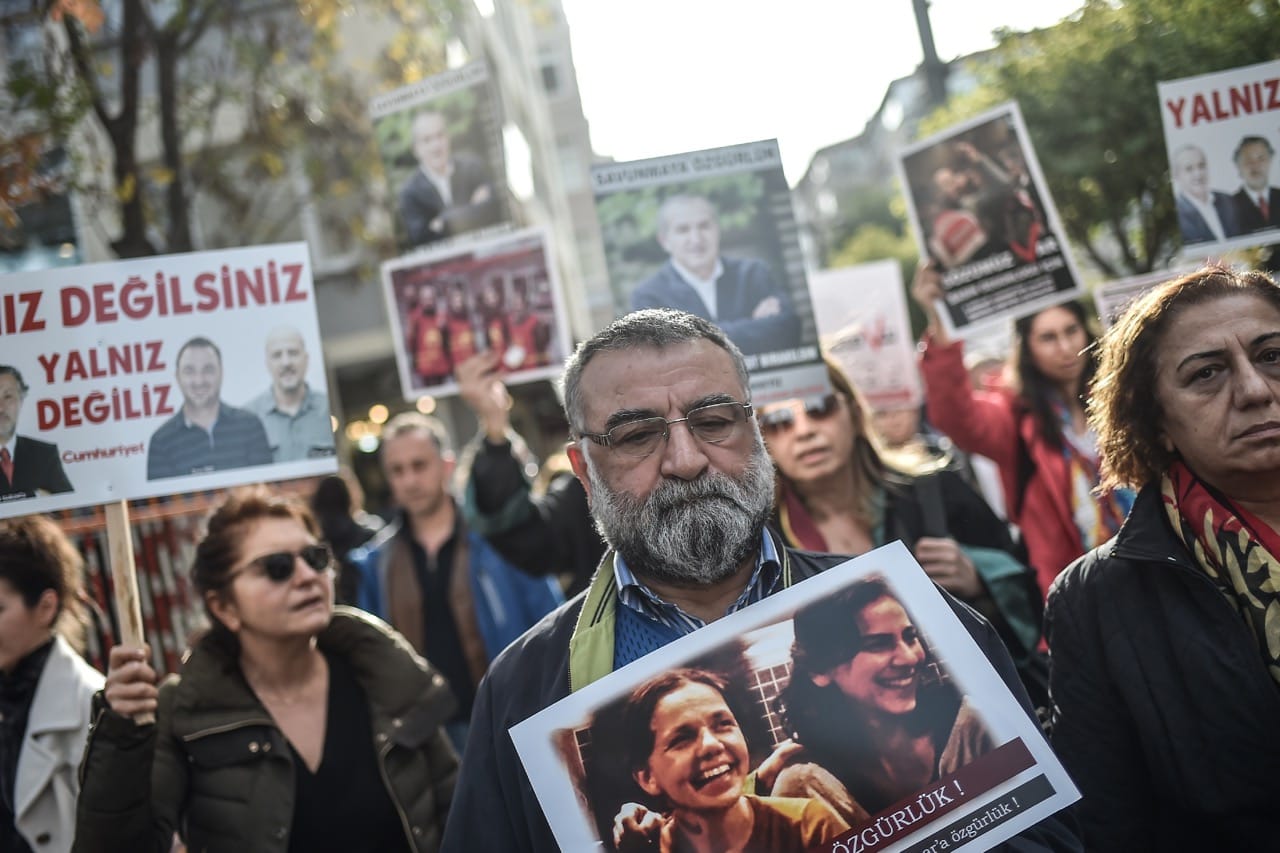For the second year in a row, the number of journalists imprisoned for their work hit a historic high.
This report was originally published on cpj.org on 13 December 2017.
A CPJ special report by Elana Beiser
The number of journalists imprisoned worldwide hit another new record in 2017, and for the second consecutive year more than half of those jailed for their work are behind bars in Turkey, China, and Egypt. The pattern reflects a dismal failure by the international community to address a global crisis in freedom of the press.
Far from isolating repressive countries for their authoritarian behavior, the United States, in particular, has cozied up to strongmen such as Turkish President Recep Tayyip Erdoğan and Chinese President Xi Jinping. At the same time, President Donald Trump’s nationalistic rhetoric, fixation on Islamic extremism, and insistence on labeling critical media “fake news” serves to reinforce the framework of accusations and legal charges that allow such leaders to preside over the jailing of journalists. Globally, nearly three-quarters of journalists are jailed on anti-state charges, many under broad and vague terror laws, while the number imprisoned on a charge of “false news,” though modest, rose to a record 21.
In its annual prison census, CPJ found 262 journalists behind bars around the world in relation to their work, a new record after a historical high of 259 last year. The worst three jailers are responsible for jailing 134–or 51 percent–of the total. CPJ has been conducting an annual survey of journalists in jail since the early 1990s.
Despite releasing some journalists in 2017, Turkey remains the world’s worst jailer for the second consecutive year, with 73 journalists behind bars, compared with 81 last year. Dozens more still face trial, and fresh arrests take place regularly. In several other cases in Turkey, CPJ was unable to establish a link to journalism. Other press freedom groups using a different methodology have higher numbers. Every journalist CPJ found jailed for their work in Turkey is under investigation for, or charged with, anti-state crimes, as was true of last year’s census.
The crackdown on the Turkish press that began in early 2016 and accelerated after a failed coup attempt that July–which the government blamed on an alleged terrorist organization led by exiled cleric Fethullah Gülen–continued apace in 2017. Authorities accused some journalists of terrorist activity based solely on their alleged use of a messaging app, Bylock, or bank accounts at allegedly Gülenist institutions.



